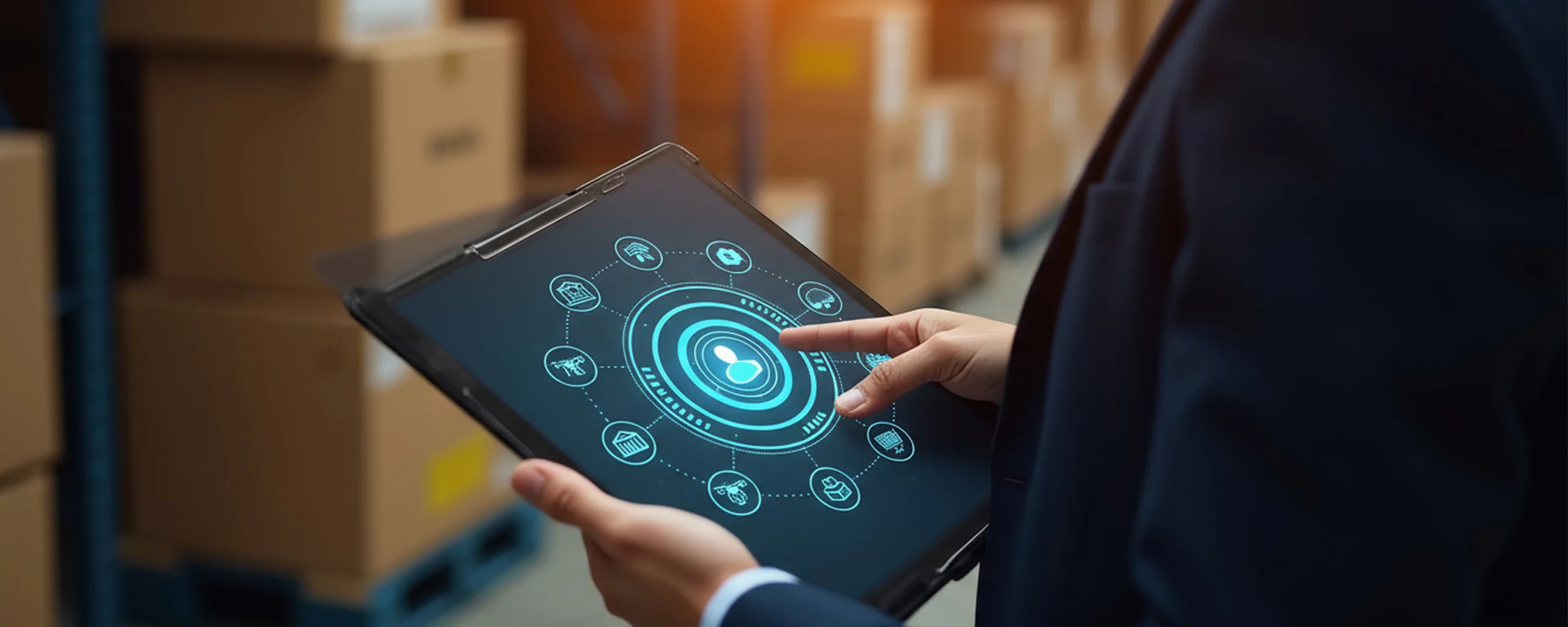AI in Retail Supply Chain: Smarter Operations from Forecasting to Fulfillment

AI in retail supply chain is helping businesses become more efficient, predictive, and resilient. From demand forecasting to last-mile delivery, artificial intelligence is changing how retailers manage their logistics and inventory. According to McKinsey, retailers using AI can reduce supply chain costs by up to 15% and improve inventory accuracy by 35%.
Why Retail Supply Chains Need AI
Retailers deal with unpredictable consumer demand, global sourcing challenges, and complex logistics networks. Traditional supply chain systems can’t process the massive data needed to respond fast. AI solves this by analyzing data in real time and predicting outcomes before disruptions occur.
A recent McKinsey report found that companies integrating AI into supply chain operations saw service level improvements of up to 65% and cost reductions of 10–20%.
How AI Is Transforming Retail Supply Chain Operations
1. Demand Forecasting
AI models analyze sales history, weather patterns, promotions, and social trends to predict demand accurately. This prevents both overstocking and stockouts.
- Example: Walmart uses AI-based forecasting systems that analyze over 200 data variables daily to predict demand across 4,700 stores.
- Impact: Improved shelf availability and lower carrying costs.
2. Inventory Optimization
AI systems automatically balance inventory across warehouses, stores, and online channels. They identify slow-moving products and optimize reorder points.
- Example: A U.S. apparel brand reduced excess inventory by 25% using AI-powered inventory optimization.
- Impact: Lower holding costs and fewer markdowns.
3. Supplier Management
AI evaluates supplier performance and identifies risks before they cause delays. It tracks on-time delivery rates, defect counts, and geopolitical factors that might affect supply.
- Example: Retailers use AI-driven risk models to predict potential supplier issues and reroute orders in real time.
- Impact: Stronger supplier reliability and fewer disruptions.
4. Route and Logistics Optimization
AI in retail supply chain management improves logistics by predicting the best shipping routes and optimizing delivery schedules.
- Example: Amazon’s logistics engine uses AI to plan routes, reducing delivery times and transportation costs.
- Impact: Faster deliveries and better customer satisfaction.
5. Warehouse Automation
AI-enabled robots and computer vision systems manage picking, packing, and restocking. This reduces human error and speeds up order fulfillment.
- Example: Ocado’s AI-powered fulfillment centers process 50,000 grocery orders daily with near-zero picking errors.
- Impact: Higher accuracy and throughput.
6. Price and Promotion Planning
AI analyzes competitor prices, customer preferences, and historical trends to suggest the most effective discounts or promotions.
- Example: Retailers use AI to identify optimal markdown strategies, improving profit margins by up to 9%.
- Impact: Smarter pricing and reduced revenue leakage.
Benefits of Using AI in Retail Supply Chain
Improved Forecast Accuracy
Traditional methods rely heavily on past data. AI combines multiple real-time signals to predict demand changes before they happen.
Reduced Waste and Costs
Better forecasting and automated replenishment mean fewer unsold goods and lower operational expenses.
Greater Resilience
AI systems identify supply chain risks early, allowing companies to act before issues escalate.
Enhanced Customer Experience
With AI managing inventory and delivery more efficiently, customers face fewer out-of-stock items and faster deliveries.
Sustainability Gains
Optimized logistics mean fewer empty miles and reduced carbon emissions, aligning with sustainability goals.
Real-World Examples of AI in Retail Supply Chain
- H&M uses AI to track store-level demand and optimize product distribution globally.
- IKEA relies on AI to plan logistics routes, reducing its transportation footprint.
- Sephora applies AI to anticipate seasonal demand surges and stock stores accordingly.
These examples show that AI adoption is not limited to large retailers; even mid-size businesses can deploy similar tools through SaaS-based AI platforms.
Challenges in Implementing AI in Retail Supply Chains
Data Quality and Integration
AI relies on accurate, unified data from multiple sources. Poor integration between systems can limit AI effectiveness.
Skill Gaps
Supply chain professionals must be trained to interpret AI outputs and integrate them into decision-making.
Change Management
AI-driven recommendations may challenge traditional processes. Success requires executive support and clear communication across teams.
Cybersecurity
As AI increases connectivity across systems, companies must ensure data protection and compliance with standards like GDPR and CCPA.
How Isometrik AI Helps Retailers Optimize Supply Chains
Isometrik AI provides modular AI automation solutions that integrate seamlessly into existing retail systems. It enables predictive analytics, real-time data processing, and AI-driven workflow automation for supply chains.
With Isometrik AI, retailers can:
- Automate demand forecasting using real-time data streams
- Predict inventory needs and optimize stock movement
- Build AI workflows for supplier tracking and logistics monitoring
- Create dashboards for visibility into cost, demand, and delivery performance
The platform allows retailers to customize workflows with low-code tools, making AI adoption faster and more scalable.
The Future of AI in Retail Supply Chain
AI in retail supply chain will soon become a core operational standard. By 2030, Gartner predicts 75% of retail supply chain decisions will be made using AI. The next phase will involve autonomous supply chains, where systems manage procurement, replenishment, and logistics independently.
Emerging technologies like digital twins and generative AI will allow supply chain simulations, enabling companies to plan for disruptions before they occur.
Retailers that embrace AI now will gain agility and cost advantages, making their operations more adaptive to future market changes.
Conclusion
AI in retail supply chain is driving a new era of predictive and data-driven operations. It helps retailers manage demand, reduce costs, and serve customers better. With platforms like Isometrik AI, companies can deploy intelligent automation that streamlines logistics, strengthens supplier management, and improves visibility.
Ready to build a smarter, more resilient supply chain? Book a demo with Isometrik AI and discover how AI automation can improve forecasting, logistics, and inventory efficiency.